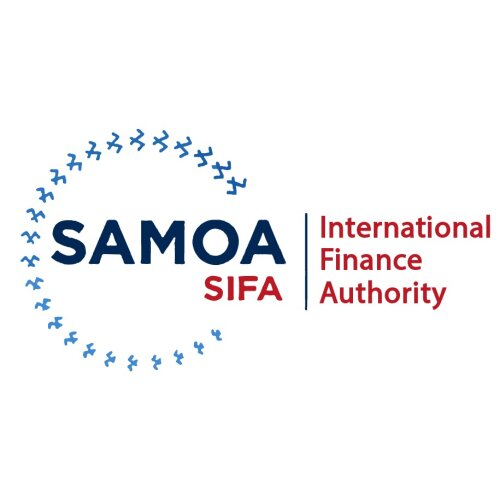Best Agriculture Lawyers in Samoa
Share your needs with us, get contacted by law firms.
Free. Takes 2 min.
Or refine your search by selecting a city:
List of the best lawyers in Samoa
About Agriculture Law in Samoa
Samoa is an agricultural nation with a rich history of farming practices. Agriculture plays a crucial role in the country's economy, providing employment for a large portion of the population. As with any industry, there are various laws and regulations that govern the agricultural sector in Samoa to ensure sustainable and responsible farming practices.
Why You May Need a Lawyer
There are several situations where you may require legal assistance in the field of agriculture in Samoa, such as disputes over land ownership, contracts with suppliers or buyers, environmental compliance issues, or dealing with government regulations. A lawyer can help navigate these complexities and ensure that your rights are protected.
Local Laws Overview
Some key aspects of local laws that are particularly relevant to agriculture in Samoa include land tenure laws, environmental protection regulations, import/export laws, and animal welfare regulations. It is important to have a good understanding of these laws to operate legally and sustainably in the agricultural sector.
Frequently Asked Questions
1. What are the land tenure laws in Samoa?
In Samoa, land is predominantly owned collectively by families or clans. The Land Titles Registration Act governs the registration of land titles and the transfer of land ownership.
2. Are there any restrictions on importing agricultural products into Samoa?
Yes, Samoa has strict regulations on importing agricultural products to prevent the spread of diseases and pests. It is important to comply with these regulations to avoid any legal issues.
3. How can I ensure that my farming practices are environmentally sustainable?
It is important to comply with environmental protection regulations in Samoa and implement sustainable farming practices to minimize the impact on the environment. Consulting with a lawyer can help ensure compliance.
4. What are my rights as a farmer in Samoa?
As a farmer in Samoa, you have rights to land ownership, fair treatment in contracts, and protection under agricultural laws. A lawyer can help protect your rights in case of any disputes.
5. Can I lease agricultural land in Samoa?
Yes, you can lease agricultural land in Samoa, but it is important to have a clear understanding of the terms of the lease agreement and comply with the relevant laws.
6. What should I do if I have a dispute with a supplier or buyer?
If you have a dispute with a supplier or buyer in the agricultural sector, it is advisable to seek legal advice to resolve the issue amicably and protect your interests.
7. How can I obtain government permits for agricultural activities?
You can obtain government permits for agricultural activities by submitting the necessary documentation and complying with the requirements set by the relevant government agencies.
8. Are there any tax incentives for farmers in Samoa?
There are tax incentives available for farmers in Samoa, such as tax deductions for certain agricultural expenses. It is advisable to consult with a tax lawyer to take advantage of these incentives.
9. What are the penalties for violating agricultural laws in Samoa?
Penalties for violating agricultural laws in Samoa can include fines, imprisonment, or revocation of licenses. It is essential to comply with the laws to avoid legal repercussions.
10. How can I protect my intellectual property in the agricultural sector?
You can protect your intellectual property in the agricultural sector by obtaining patents, trademarks, or copyrights for your inventions, brand names, or creative works. A lawyer specializing in intellectual property can help you navigate this process.
Additional Resources
For further information and assistance in the field of Agriculture in Samoa, you can reach out to the Ministry of Agriculture and Fisheries, Samoa Chamber of Commerce, or consult with a local law firm specializing in agricultural law.
Next Steps
If you require legal assistance in the field of Agriculture in Samoa, it is advisable to contact a qualified lawyer specializing in agricultural law. They can provide you with expert advice, represent you in legal matters, and help ensure that your rights are protected in the agricultural sector.
Lawzana helps you find the best lawyers and law firms in Samoa through a curated and pre-screened list of qualified legal professionals. Our platform offers rankings and detailed profiles of attorneys and law firms, allowing you to compare based on practice areas, including Agriculture, experience, and client feedback.
Each profile includes a description of the firm's areas of practice, client reviews, team members and partners, year of establishment, spoken languages, office locations, contact information, social media presence, and any published articles or resources. Most firms on our platform speak English and are experienced in both local and international legal matters.
Get a quote from top-rated law firms in Samoa — quickly, securely, and without unnecessary hassle.
Disclaimer:
The information provided on this page is for general informational purposes only and does not constitute legal advice. While we strive to ensure the accuracy and relevance of the content, legal information may change over time, and interpretations of the law can vary. You should always consult with a qualified legal professional for advice specific to your situation.
We disclaim all liability for actions taken or not taken based on the content of this page. If you believe any information is incorrect or outdated, please contact us, and we will review and update it where appropriate.
Browse agriculture law firms by city in Samoa
Refine your search by selecting a city.












